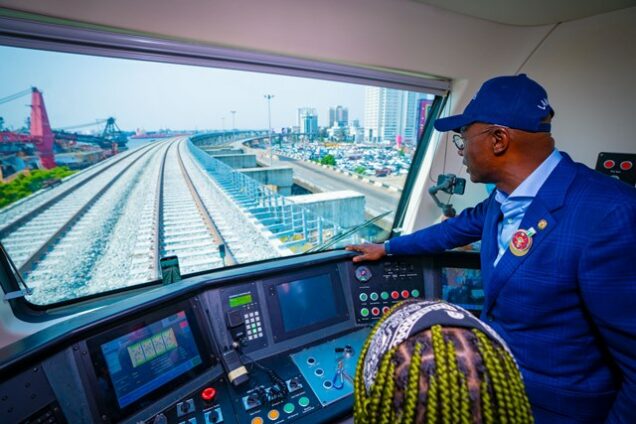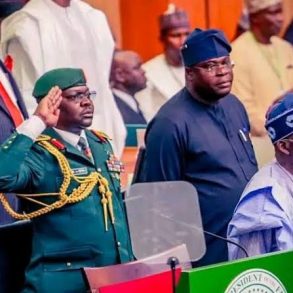Years after its initial conception, the first phase of the ambitious Lagos metroline train system finally rolled out commuter services, raising hopes of an end to the riotous traffic congestion in the Africa’s largest city. Where his predecessors had delayed, Governor Babajide Sanwo-Olu moved decisively to complete the 13-kilometre Blue Line, the first of six planned routes that will criss-cross the metropolis and environs, and provide succour for its 23 million residents, businesses, and visitors. This laudable project has taken too long; Sanwo-Olu should, therefore, proceed with speed, roll out the next phases and advance the ambition for megacity status.
Lagosians and investors enthusiastically welcomed the Blue Line that runs from Marina on Lagos Island to the bustling Mile 2 on the mainland and back. They anxiously hoped that the next phases would materialise very quickly and relieve their nightmarish daily commuting that has earned Lagos global notoriety. Sanwo-Olu promised that the next phase, the 37-km Red Line, which is 95 per cent completed, would be opened before the end of this year.
Four more routes – Brown Line, Orange Line, Purple Line, and Yellow Line – are expected to roll out with the Orange connecting the Redemption City in Mowe, Ogun State, to Lagos.
The project has a chequered history. It was first conceived by Lateef Jakande, the first civilian governor of Lagos State (1979-1983), who sealed an agreement with a French consortium at a cost of N689 million for the first 28.5km. But the military junta that toppled the Second Republic led by Muhammadu Buhari, cavalierly cancelled it. Resurrected in 2003 by Bola Tinubu, civilian governor (1999-2007), it has nevertheless been too slow in coming to fruition.
Lagos desperately needs a metro train service as part of a modern inter-modal urban transportation system. Currently relying on roads which are inadequate and poorly maintained, traffic congestion in the metropolis is deemed the worst in the world.
The World Economic Forum reckons that commuters spend 30 hours per week commuting to and from work, with air pollution costing the state 2.1 per cent of its GDP, and leading to 60 per cent of deaths for children under five years old.
The situation has grown progressively worse. The population grew from three million residents in 1983, but is currently claimed at 23 million by the LASG. With a network of 9,100 roads spanning 5,180km, and hosting about 5.0 million vehicles, Shuttlers, a tech-enabled transport firm, estimates that Lagos’ transport system, conveys 12 million commuters daily. It was ranked the world’s fourth most unliveable city by the Economist Intelligence Unit Liveability Index.
Sanwo-Olu should end the interminable delays. Being a Public-Private Partnership, the project should be stripped of political considerations, and driven by profitability and its importance to the consolidation of a state that accounts for 30 per cent of Nigeria’s GDP, 60 per cent of industrial investments and 45 per cent of its skilled manpower.
The inter-modal transportation model should be vigorously pursued with more investment in water, rail, tram, and air shuttle services. This should be private sector-led and opened to international and domestic investors.
The world’s major cities are strong in modern rail, road, and water transportation networks. Singapore, a city state, is reckoned as having the world’s best metro system, according to Far and Wide, an online resource, with Hong Kong, London, Paris, Shanghai, Seoul, Madrid, and several other Chinese and American cities rated highly. Addis Ababa’s Metro launched in 2016 is adjudged the first modern light rail system in Africa, with Tangiers (Morocco), Algiers (Algeria), Tunis (Tunisia), and Cairo (Egypt) following thereafter.
Other states should follow the Lagos example. Some states can collaborate to develop rail lines that are mutually beneficial. Three American states share the Washington Metroline, which links Washington D.C., Maryland, and Virginia.
Sanwo-Olu should deliver on schedule and leave an enduring legacy.





